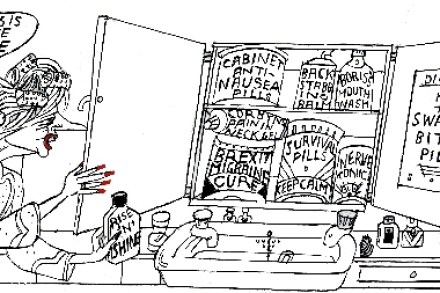Portrait of the week | 5 July 2018
Home In an attempt to distract the nation from the toothache of Brexit, the government announced a £4.5 million scheme to encourage homosexuals to hold hands; a law would be considered to ban corrective therapy, which Penny Mordaunt, the Equalities Minister, said could involve rape. A man known as Nick, whose true name is withheld for legal reasons, who alleged there was a paedophile ring at Westminster, was charged with perverting the course of justice. Labour restored the whip to Jared O’Mara, the MP for Sheffield Hallam, from whom it had been suspended in October. Gavin Williamson, the Defence Secretary, was interrupted during a statement to the Commons by the




















